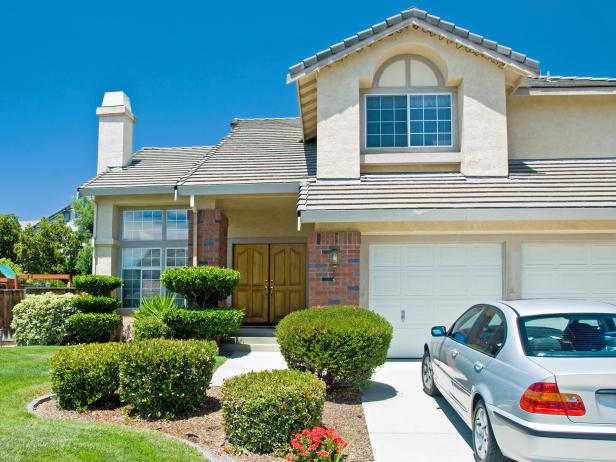What Mortgage Is Right for Me?

©iStockphoto.com/Vacclav
There are hundreds of mortgage products out there, so be sure to find the right one for your needs. Before you approach any lenders, figure out your financial strategy.
Ask yourself these questions:
- How long do I plan to live in this house?
- Where do I see myself in five or ten years?
- Do I have to or want to make home improvements?
- Do I want to keep cash on hand for other investments?
- Can I take financial risks?
- Do I want to be debt-free?
Now that you have a reasonable picture of your financial philosophy, shop around and evaluate your options. Don’t rush into the first loan offer you get.
If you can afford to take financial risks and have the assets and credit score to back it up, you can get the best deals. Go for mortgage products that allow you to pay the least amount of cash while still satisfying your loan obligation. Consider these:
Choose a longer loan term, such as 30 years or more. The longer your amortization period, the lower your monthly payments would be, but the more interest you’d pay. If you borrow $100,000 at 8 percent interest over 30 years, you would pay $164,000 in interest along with the principal by the end of the term. Your mortgage payment would be $733 a month. A 15-year mortgage, in contrast, would require a $955 monthly payment.
Skip the down payment and go for an "80-20" loan. A standard loan funds the first 80 percent and a second loan with higher interest rates finances a 20 percent down payment. This option also gets rid of private mortgage insurance, or PMI, which is typically required for homes bought without 20 percent down payments. PMI protects the lender in the event that a borrower defaults on a loan.
Consider an adjustable rate mortgage (ARM) if you want to keep some cash or take advantage of a low interest rate. The rate is fixed for the first few years, then begins floating. But be aware of market conditions - if rates rise, so do your payments. This option makes sense for serial relocators, who don’t plan to be in a home for more than five years. A three or five-year ARM lets you make low payments and gets you through the typical mortgage cycle. If rates drop, you can refinance. If rates rise, you can sell.
Interest-only mortgages also let you keep more cash. They do not require principal payments during an initial period, typically three, five or 10 years. After the initial period, borrowers must begin repaying principal over the remaining life of the loan. By comparison, a traditional amortizing loan requires principal and interest payments from day one, with more of the monthly payment going to interest in the early years and to principal in the later years.
Homeowners can lower their monthly payment by 20 percent to 25 percent by skipping principal payments in the early years, but they must be prepared for a big jump in payments when the interest-only period ends. A lower initial monthly payment may also allow you to qualify for a bigger home loan. The downside? When housing prices fall, you could end up owing more on your home than it’s worth.
To qualify, you normally must have good credit or pay a slightly higher fee or interest rate.
Balloon payment mortgages are short-term, fixed-rate loans that involve small payments for a certain time period and then one large payment (the balloon payment) for the remainder of the loan.
If the home you want appraises for more than the sale price, you may be able to borrow up to that appraised value to cover closing costs.
If you don't like debt and risk, you may want to stick with conventional loans with fixed rates and shorter terms, making big down payments and extra principal payments whenever possible. If you go with a 30-year mortgage, you could refinance after 10 years. You could get a lower rate and dramatically reduce your principal balance in a shorter period.
Here are more tips for finding the right home loan:
- Use mortgage calculators and other tools that let you see exactly how much you'll have to pay under various scenarios.
- Shop for the best rates from both local banks and national lenders. Consider working with a mortgage broker.
- Decide if you're willing to pay for points to get a lower interest rate, or take a higher rate to keep closing costs down.
- Combine different loan features to create a loan that's comfortable for you.
- Factor in costs like property taxes, insurance and homeowner's association fees. Will your lender hold these in escrow?
- Ask about alternative loan terms, such as 20 years. They exist though many lenders don't advertise them.
- Consider refinancing your current home if you need cash for a second home.
(Information from Scripps Howard News Service was used in this article.)














































